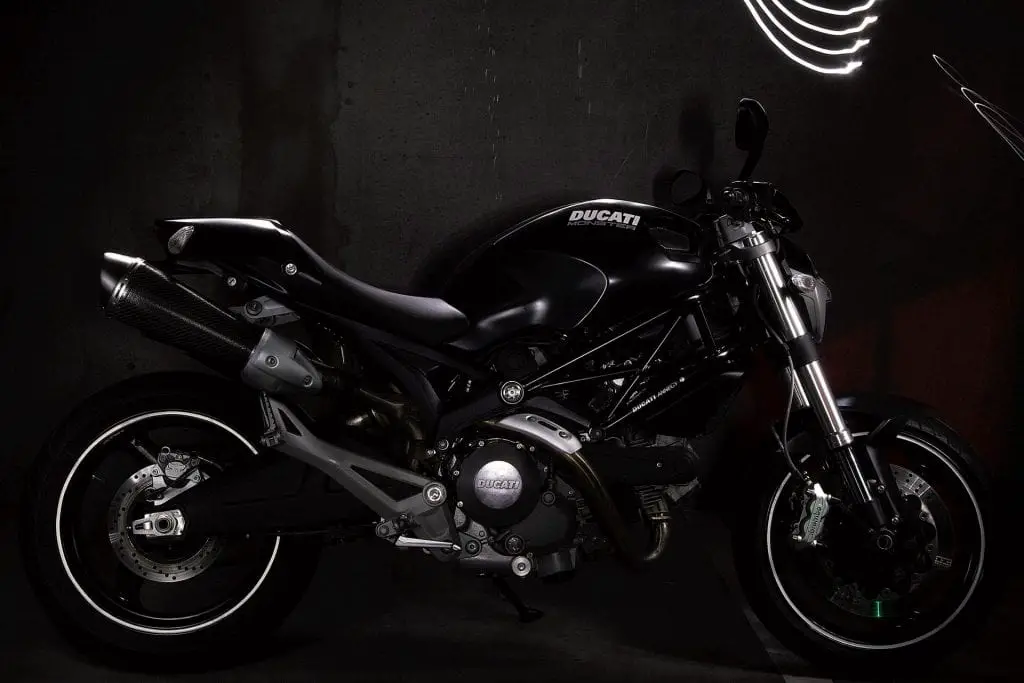The clutch on a motorbike is of course very important. It does the job transferring power from the engine to the gearbox to spin the rear wheel. Most modern bikes have a wet clutch. It’s bathed in engine oil to keep it cool, and generate less friction. Yes, you can burn a wet clutch up. Especially when you’re a rough off-road biker.
Burning the clutch does not actually mean that the clutch actually catches on fire. It simply means wearing it down.
How do you burn out a wet clutch?
More importantly, what to do to avoid burning a clutch. If you want your motorbike clutch to last longer, avoid slipping the clutch, especially on higher rpm. It is good to keep note that while you are slowing down to wait on traffic signals, switch to a low gear and do not hold the clutch.
Schedule yourself regular maintenance on your bike. It is good for your bike to have a regular engine oil change to get rid of residual wearings. Cleaner engine oil will keep the clutch wet in a “healthy” temperature. If your bike has a hydraulic clutch, make sure to refill regularly and avoid having it lower the minimum mark.
Note: Car oil and Motorbike’s oil are different, car oil usually consists of friction reducing agents in it which might make your clutch discs slip.
Signs Of Burned Clutch
The most obvious way to tell your bike’s clutch is worn is by checking if engine power is transferred to the gearbox properly. There isn’t really a gradual fade of signals of clutch beginning to break. It either accelerates quickly, or accelerates slowly. You will notice the engine speed rising as you apply throttle, but it doesn’t reflect the road speed
What’s A Wet Clutch? (Vs Dry Clutch)
Wet clutches are widely used in motorcycles and dirt bikes. The term “wet”, simply means the clutch is lubricated with oil. Wet clutch consists of more than one friction plate that means it has multiple friction plates joined together to the flywheel. Dry Clutch consists of 2 plates joined together to transfer torque from the engine by the help of flywheel.
Dry clutch requires more space, and it is bigger in diameter. Of course, it means more torque. The infamous brand Ducati also used dry clutch setup in their bikes in their early years. The obvious reason why a dry clutch produces more torque is because it has no oil in it like a wet clutch does, therefore less drag is presented.
How To Prevent Burning Clutch?
Shift gear without the clutch?
Yes, you can. But, it’s not for every motorbike. They work best with sport bikes and dirt bikes that have shorter gear boxes. Clutchless shifting is often used by many riders who want faster shifting while minimizing the time wasted between gears shifting. It does no damage to your bike’s transmission when done properly. However, downshifting without a clutch is much more difficult. You’ll need more practice to get the perfect timing.
Clutchless shifting has a greater risk especially when you’re downshifting it wrong on a consistent basis. You can get the best timing to shift when there is no throttle. If you experience hard cluncking or grinding noises when you shift. Get your bike to the nearest mechanic as soon as possible.
Too much clutch pressing while bike is in motion
To avoid unnecessary wear and tear, it’s best to not continuously press the clutch when not required. You will have to match the rev to re-engage with the engine, monitoring rpm, speed, and gears elevations to prevent wear, which requires a lot of mental effort.
If you do it wrongly, It can heat up pretty quickly and also leads to extra wear on brake pads to use more braking power since transmission is disengaged.
The common rule of thumb is to leave the clutch engaged until the vehicle slows down to a speed beyond which it will require a downshift and perform a gradual downshift with blips of throttle.
What should you not do to burn your clutch?
Wrong position in the clutch handle when using a cable clutch. Make sure you have easy reach control of the clutch at all times. Try to avoid having clutch control way out at finger-tips. It will create a risk of slipping the clutch and it will also make the clutch extremely heavy.
Some beginner riders use poor technique to get out of sand/mud, they would normally give too much gas holding the clutch in to try getting the extra power out of the bike, they holding it in for such a long time and this is where the clutch burns out pretty instantly and comes out the other side with a broken bike. If you don’t use the clutch, then the bike will not get enough power, ending up stalling it. So you really have no choice, but to use the clutch.
It is not difficult to get the right technique to help get out of the mud. You can try rocking the bike left and right, especially when you’re in a sticky and muddy situation to gain more traction before throttling it. If it doesn’t work that well, position yourself at the back of the bike and apply body weight as much as you possibly can and try to bounce it off generating more momentum to help the engine a little while pressing the gas.
In the worst case scenario if those techniques didn’t work. Turn off the engine and drag your bike out of the mud.
How long should a motorbike clutch last?
Typically it will last between 20,000 – 60,000 miles (30,000 – 100,000 km). If the clutch is not properly maintained and often slipped, it may need a replacement after as little as 5,000 miles (8,000 km). However, if you can handle it well, experienced riders out there can ride over 100,000 miles (160,000 km) on a factory original clutch.
Fixing Burned Clutch
It is actually not difficult to replace a clutch yourself. In fact, it is common and regular maintenance. Normally it takes about 30 minutes to get it done.
Note: If you discover new smells, sounds, or leaks, it must be investigated as quickly as possible.

